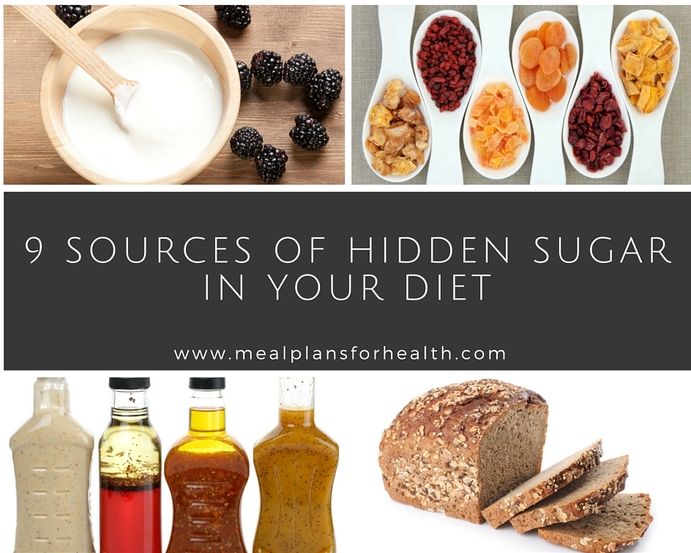 On this week's What's That Wednesday post, we discuss foods that may still be in your diet; foods you think are "healthy" but actually sabotaging your health and slowing down your metabolism and weight loss goals. Many of my clients tell me, "Ok Billie, so I eat fairy healthy already - I don't eat a lot of sugar, I avoid baked goods, candy, and soda. I eat whole grains and I also try to limit processed snack foods, but I still am not losing weight. What's the deal?!" I can relate to this because this was me most of my life until about 6 years ago. While I didn't exercise the best of eating habits in my childhood or teens, I did start to change my diet and "eat healthy" or so I thought in my 20's, but I still really, always struggled to lose weight and keep it off. Then I learned one simple nutritional rule - all simple carbs turn into glucose. Our bodies have a limited storage capacity for glucose so when you over-consume simple carbs and your blood sugar rises, one way your body compensates is to convert those glucose molecules to fat. That fat gets stored in your liver and adipose tissues (fatty tissues). This not only keeps you from losing weight but also puts you at risk for cardiovascular disease and diabetes. So, to switch your body out of the "fat storage" mode and into "fat burning" mode, its important to avoid sugar and simple carbs as much as possible in your diet. The food industry makes this difficult on us since sugar has so many names and gets slipped into just about everything these days, so you have to read every label carefully. Just because it says low sugar, sugar-free, organic, whole grain, or natural on the front of the box, it doesn't mean it's healthy. Check out my list to help you avoid some common culprits... 9 Sources of Hidden Sugar in Your Diet:
If you liked this blog, you may also like our eBook, 10 Day Sugar Detox Diet- a 10 day real food eating plan that helps you avoid added sugars and processed foods, boosts your metabolism, and kick starts your wellness goals. This eating plan includes over 30 delicious recipes, a 10-day eating plan, and grocery shopping lists. So what are you waiting for?! To preview the first few pages of this eBook as well as the recipe list and pick up a copy, simply click here. ~Billie
0 Comments
Leave a Reply. |
Billie Shellist, FDN-P
I practice functional nutrition, an approach that allows me to look at your entire health history and help you find the "root causes" of your chronic health complaints. This cuts out the trial and error process and helps you get real symptom relief and resolution! Food is medicine and knowledge is power -I hope you enjoy my anti-inflammatory recipes which are gluten, dairy, and soy free as well as very low grain and sugar. If you'd like to heal from the root cause(s) of your chronic symptoms, try starting with a complimentary 15-minute consultation. Click here to request your free session. |

